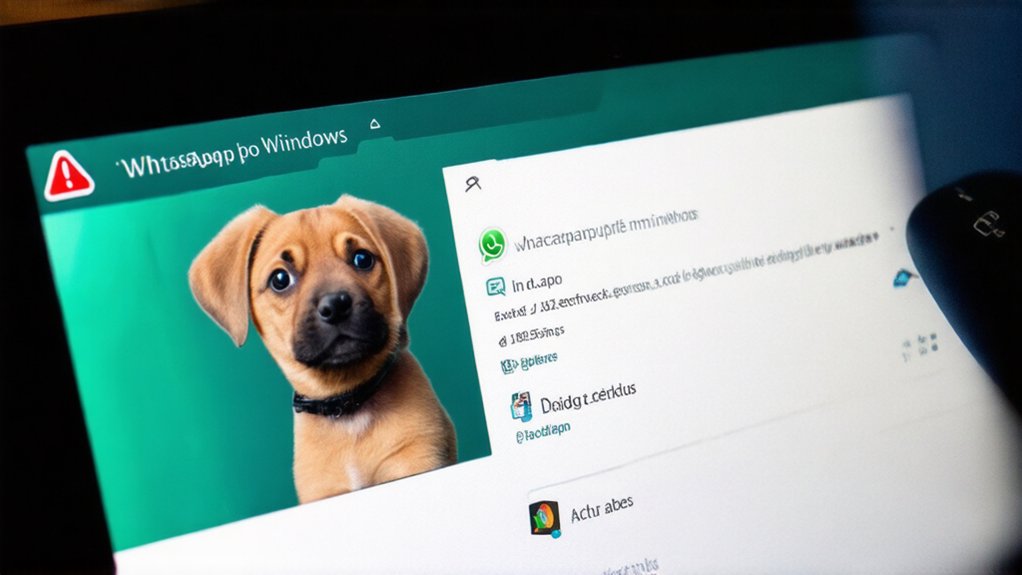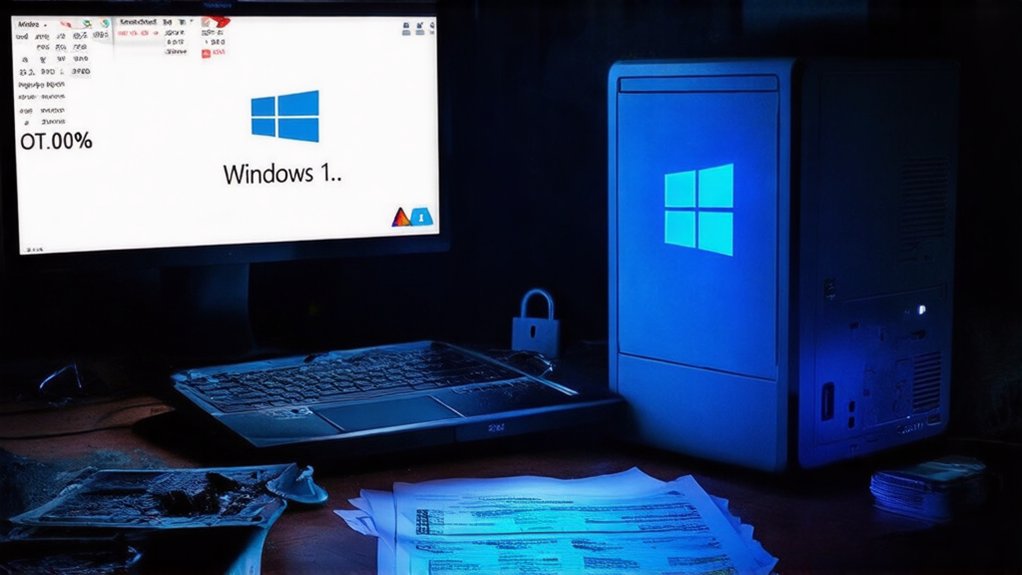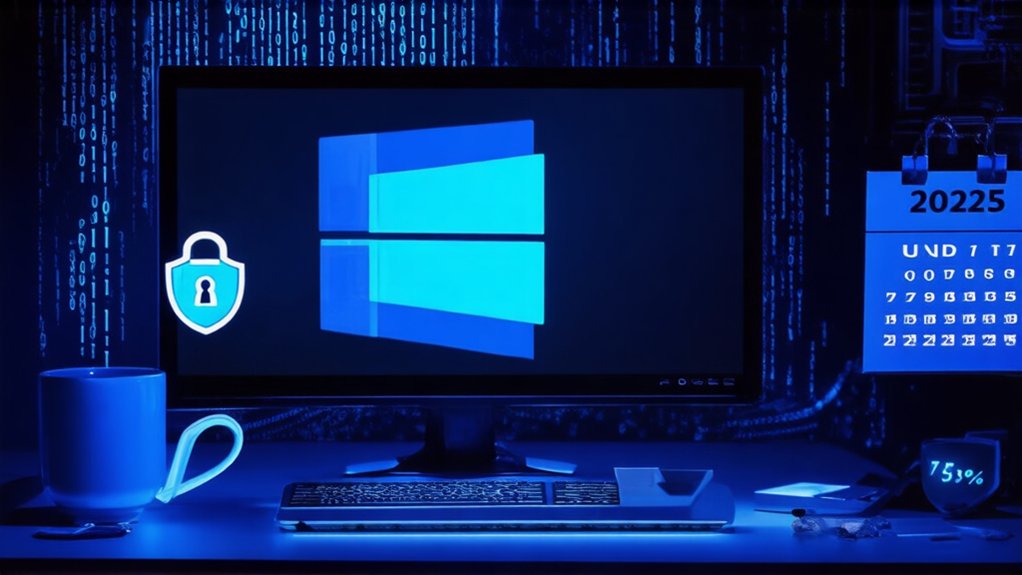A critical security flaw in WhatsApp for Windows has left millions of users vulnerable to potential cyberattacks. The issue, tracked as CVE-2025-30401, affects all desktop versions prior to 2.2450.6 and it’s no small problem. Users who think they’re opening innocent image files might actually be launching malicious code. Not great.
The vulnerability stems from a mismatch between how WhatsApp handles file types. It shows files based on their MIME type but opens them according to their extension. This disconnect means a file named “cute_puppy.jpg.exe” might look like an adorable image in your chat but launch dangerous executable code when opened. Pretty sneaky, right?
This flaw fundamentally enables remote code execution, which is just fancy security-speak for “bad guys can run whatever they want on your computer.” The worst part? Users typically trust files from friends and family. They click without thinking twice. That’s exactly what attackers are counting on.
The issue only affects WhatsApp’s Windows desktop app, not Android or iPhone versions. Still, Windows users make up a huge chunk of WhatsApp’s desktop audience. Meta, WhatsApp’s parent company, has released a patch, but countless users never update their apps. They’re sitting ducks.
What’s particularly frustrating is WhatsApp’s incomplete blacklisting of dangerous file types. Python scripts and PHP files? Totally allowed. Because apparently, everyone needs to send code snippets through their messaging app. Meta has shown little interest in fixing this issue, having closed the report without addressing the core vulnerability.
Security researchers uncovered the bug through Meta’s bounty program. They demonstrated how easily attackers could disguise harmful files as innocent attachments. The fix is simple: update to version 2.2450.6 or newer.
Until then, maybe think twice before opening that “hilarious_meme.jpg” your barely-tech-literate uncle sent you. For those who haven’t updated yet, approaching file attachments with extreme caution is the way to go. Or just use your phone instead. Sometimes the old ways are safer.
The vulnerability is especially dangerous in group chat scenarios, where a single malicious file could potentially impact numerous users simultaneously.




